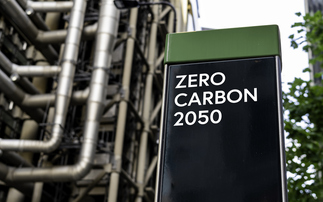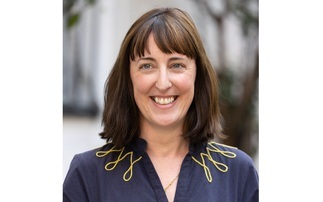Plugging leaks, cleaning rivers and setting tougher standards - water companies are already working on SDG6 ambitions, according to Water UK's Michael Roberts
My hunch is that if you asked the average person to reel off the UN's 17 Sustainable Development Goals (SDGs) - let alone what they mean for water companies in the UK - you'd get a lot of blank looks.
And yet the aspiration to promote economic, social and environmental progress represented by the SDGs is at the heart of what our members do.
Not just through their enduring support for the global charity Water Aid, with its goal of getting water, toilets and hygiene to the millions of people around the world still living without these basic human rights - but right here at home as well.
Take SDG 6 for example - that by 2030 there should be universal and equitable access to safe and affordable drinking water for all. In the UK our drinking water is independently assessed as some of the best in the world: but in March Sir James Bevan, Chief Executive of the Environment Agency, warned that England is at risk of running out of water within 25 years.
His comments reflected the findings of ground-breaking industry research which we published in 2016 and which told us two things.
First, in the face of climate change and population growth, if we carry on with 'business as usual', droughts are likely to become both more frequent and more geographically widespread than previously understood.
Second, we can mitigate the impact of these risks to water supplies at reasonable cost, but we will need every tool in the box to do so. There needs to be more efficient use of water at home, in business and in agriculture. This includes reducing leakage, but also a new approach to sharing water across regions as well as embracing new techniques and technologies such as smart meters.
The sector is already addressing these issues, working with regulators, government and stakeholders. Individual company five-year business plans submitted last September set out proposals to 2025, summarised (for companies in England) in Water UK's ‘Manifesto for Water.'
Those proposals included some £50bn on improved services and the most ambitious industry leakage reduction programme in 20 years - as well as cleaning up 8,000km of rivers and a real-term reduction in bills. And our ambitions as a sector go further.
In April, water companies in England set out how they intend to complement their business plans in tackling wider social and environmental challenges with the release of our ‘Public Interest Commitment.'
The Public Interest Commitment, or PIC for short, includes a pledge to work together towards five challenging goals for the sector. For example, on leakage, the goal is to triple the rate of reduction by 2030 - unprecedented in our history, to meet the unprecedented challenges posed to water supplies.
The goal on leakage is itself part of a much wider strategy to invest in water supplies and improve water efficiency - the latter potentially including new standards for domestic appliances and houses, as well as behaviour change. In June, Water UK will complete analysis which we hope will inform a possible national target for per capita consumption of water.
But the pledges to work together as set out in the PIC go broader than that and relate directly to several of the other Sustainable Development Goals to promote social and environmental progress.
On the environment, companies intend to work together on two challenging goals under the PIC: achieving net zero carbon emissions for the sector by 2030 and - building on our work to create a national network of drinking water refill points - preventing the equivalent of four billion plastic bottles ending up as waste by the same date.
In addition, we also fully support the current Environment Bill which could provide the supporting framework needed to help deliver the government's 25 Year Environment Plan, with its goal to leave the environment in a better state than today.
On social improvement, the PIC also sets out the sector's intention to strive on two fronts: first, to make bills affordable for financially-vulnerable households and develop a strategy to end water poverty; and second, to be the first sector to achieve 100 per cent commitment to the Social Mobility Pledge.
Undoubtedly the many social and environmental challenges we face are daunting, but the SDGs help us by providing a relevant framework with which we can bring about the vital changes needed. We believe passionately that water companies can make a positive contribution to addressing these issues while also delivering a key public service. We are committed to doing all we can to ensuring future generations continue to enjoy access to world-class water from an industry that puts the wider good at the heart of everything it does.
Michael Roberts is CEO of Water UK







